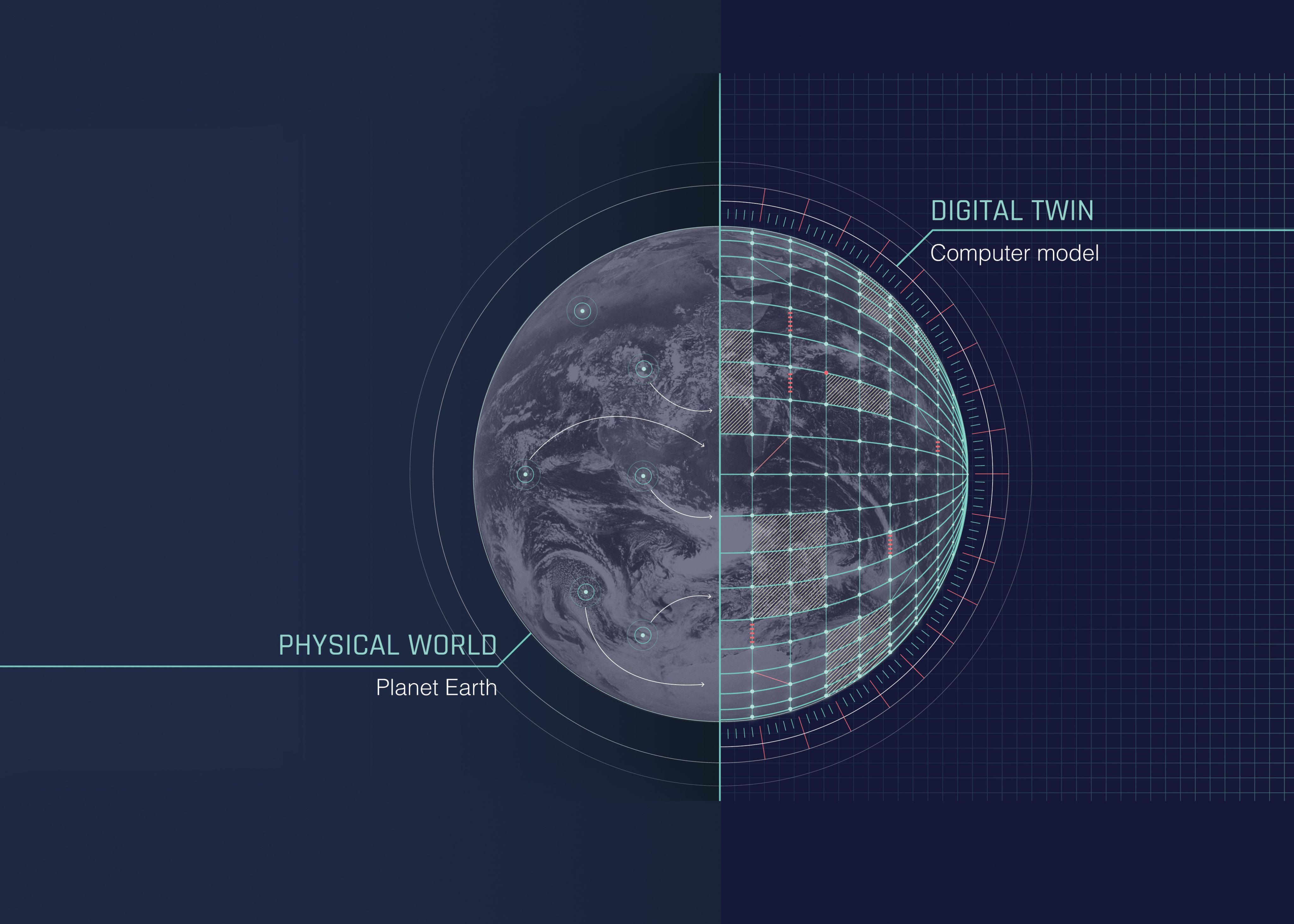Phase Two of Destination Earth Confirmed

13 December 2023: The second phase of the Destination Earth (DestinE) initiative has today been confirmed by the European Union and unanimously endorsed by the Councils of the 3 implementing entities delivering DestinE. Commencing in mid-June of 2024, the 24-month phase will continue to be implemented by the three entrusted entities: the European Centre for Medium-Range Weather Forecasts (ECMWF), European Space Agency (ESA) and European Organisation for the Exploitation of Meteorological Satellites (EUMETSAT), under the leadership of the Directorate-General Communications Networks, Content and Technology (DG CNECT) of the European Commission.
This European endeavour to create a digital twin of Earth will considerably enhance Europe’s ability to respond and adapt to extreme weather and climate change, strengthening its implementation of the twin green and digital transition.
DestinE will provide a novel information system with unprecedented levels of detail, quality and interactivity that will enable users to understand and explore how the Earth system will evolve under different scenarios. Sectors likely to be impacted by extreme events and climate change, such as agriculture, forestry, energy, public health and water resources will significantly benefit.
Progressing towards a ‘Digital Twin’ of Earth
The first phase of delivery (Dec 2021-June 2024) covered the preparation, piloting and implementation of all main components of the DestinE system, including the first two Earth-system Digital Twins, Digital Twin Engine, Data Lake and Core Service Platform.
In June 2024, DestinE will enter its second phase, which will evolve the DestinE system and ramp-up operations, with a focus on users, consolidation, maintenance, and continuous evolution of the components of the DestinE system.
The first two Digital Twins; the Digital Twin on Climate Change Adaptation and the Digital Twin on Weather-induced Extremes, implemented by ECMWF together with more than 60 partners across Europe, will transition towards operational-level execution. This will be achieved through evolving the configuration developed in phase 1, focusing on increasing the efficiency of performing complex earth system simulations on the EuroHPC supercomputers, refining the quality and enhancing the interactivity elements of the digital twins.
The Digital Twin Engine, the software infrastructure needed to power the digital twins, handle and interact with their data, also implemented by ECMWF together with its many partners, will be evolved with a focus on scalability, portability and interoperability. A key area will be the transition of end-to-end workflows of the Digital Twins on EuroHPC towards an operation-level execution.
The Data Lake, which is implemented by EUMETSAT, references and provides seamless access to DestinE Digital Twins data and a large number of external data spaces, as well as providing big data processing services. EUMETSAT will continue to develop the fitness-for-purpose of the DestinE data portfolio and improve performance of federated access.
The Core Service Platform, known as DESP, implemented by ESA for a large community, will evolve the DESP services, through a co-designed approach with users. This will include a growing portfolio of innovative advanced applications and user-provided services, contributing to a rich platform ecosystem that will unlock novel ways of exploitation and promote cooperation between communities.
Accelerating the use of machine learning and artificial intelligence
Funding for the second phase of Destination Earth will also intensify the use of recent game changing breakthroughs in machine learning and artificial intelligence (ML/AI) across the initiative. In particular, ECMWF will lead developments towards a machine learning based earth-system model that will support quantifying uncertainties of the earth system digital twins and enhancing their interactivity capabilities. These developments will allow Destination Earth to become a unique provider on which European industry can test and build new AI-powered products and services. With European values and transparency at its heart it will be a powerful demonstrator on how responsible AI decision processes can be built.

Additional information
